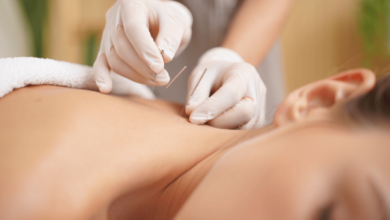Wisdom Tooth Extraction: A Comprehensive Guide

Wisdom teeth are the last molars to erupt around the age of 17 to 25 years. Though these are not of much use, any infection or impaction of these molars can cause extreme pain and discomfort. The wisdom teeth extraction surgery in South Denver helps relieve painful symptoms to improve overall health and wellness. In this article, we will discuss the complications of leaving wisdom teeth untreated, the procedure, and the aftercare involved.
What are the complications of leaving wisdom teeth untreated?
Leaving wisdom teeth untreated can lead to various complications, including:
- Overcrowding: Wisdom teeth can push against neighboring teeth, causing overcrowding and orthodontic issues.
- Impaction: Wisdom teeth can become impacted, leading to pain, swelling, and infection.
- Abscesses and cysts: Infected wisdom teeth can form abscesses or cysts, which can lead to serious infections and damage to surrounding bone and tissue.
- Damage to adjacent teeth: Wisdom teeth can rub against adjacent teeth, causing wear and tear, and potentially leading to cavities or tooth loss.
- Gum disease: Wisdom teeth are hard to clean, making them prone to gum disease and bone loss.
- Sinus issues: Impacted wisdom teeth can push against the sinuses, causing pain, pressure, and sinus infections.
- Headaches and facial pain: Impacted or infected wisdom teeth can cause headaches, facial pain, and earaches.
- Cellulitis: Bacterial infections from wisdom teeth can spread to the face and neck, leading to cellulitis.
- Bone loss: Untreated wisdom teeth can lead to bone loss around the surrounding teeth.
- Systemic infections: In rare cases, untreated wisdom teeth can lead to life-threatening systemic infections.
It’s important to consult a dentist or oral surgeon to evaluate the best course of action for your wisdom teeth.
What is the process involved in wisdom teeth extraction?
The process involved in extracting a wisdom tooth typically includes:
- Consultation: Initial evaluation by a dentist or oral surgeon to determine the need for extraction.
- Anesthesia: Administration of local anesthesia, sedation, or general anesthesia to ensure comfort during the procedure.
- Surgical access: Making an incision in the gum to access the wisdom tooth.
- Bone removal: Removing some bone around the tooth to facilitate extraction.
- Tooth sectioning: Sectioning the tooth into smaller pieces if it’s impacted or difficult to remove.
- Tooth removal: Extracting the wisdom tooth from the socket.
- Stitches: Closing the incision site with stitches to promote healing.
- Recovery: Resting for a short period before being discharged.
- Follow-up: Post-extraction care and follow-up appointments to monitor healing and remove stitches.
The procedure may vary depending on the complexity of the extraction, the patient’s overall health, and the dentist or oral surgeon’s preferences.
Note: Your dentist or oral surgeon will provide specific instructions and guidance throughout the process.
What to expect after wisdom tooth extraction?
Aftercare for wisdom tooth extraction typically involves:
- Pain management: Taking prescribed pain medication to manage discomfort and pain.
- Swelling and bruising reduction: Applying ice packs to the affected area to reduce swelling and bruising.
- Diet modification: Eating soft foods for a few days, avoiding hot liquids, alcohol, and spicy foods.
- Oral hygiene: Gently brushing teeth, avoiding the extraction site, and using antibacterial mouthwash.
- Stitches removal: Return to the dentist or oral surgeon for stitch removal (if necessary).
- Follow-up appointments: Attending follow-up appointments to monitor healing and address any concerns.
- Rest: Avoiding strenuous activities, resting, and elevating the head to reduce bleeding and swelling.
- Bleeding control: Applying gentle pressure with a gauze pad to control bleeding.
- Smoking and alcohol avoidance: Avoiding smoking and alcohol consumption to promote healing and prevent dry sockets.
- Medication adherence: Taking prescribed medications, such as antibiotics or pain relievers, as directed.
By following these aftercare instructions, you can ensure a smooth and comfortable recovery after wisdom tooth extraction.
Curious about what’s next? Explore our articles.




